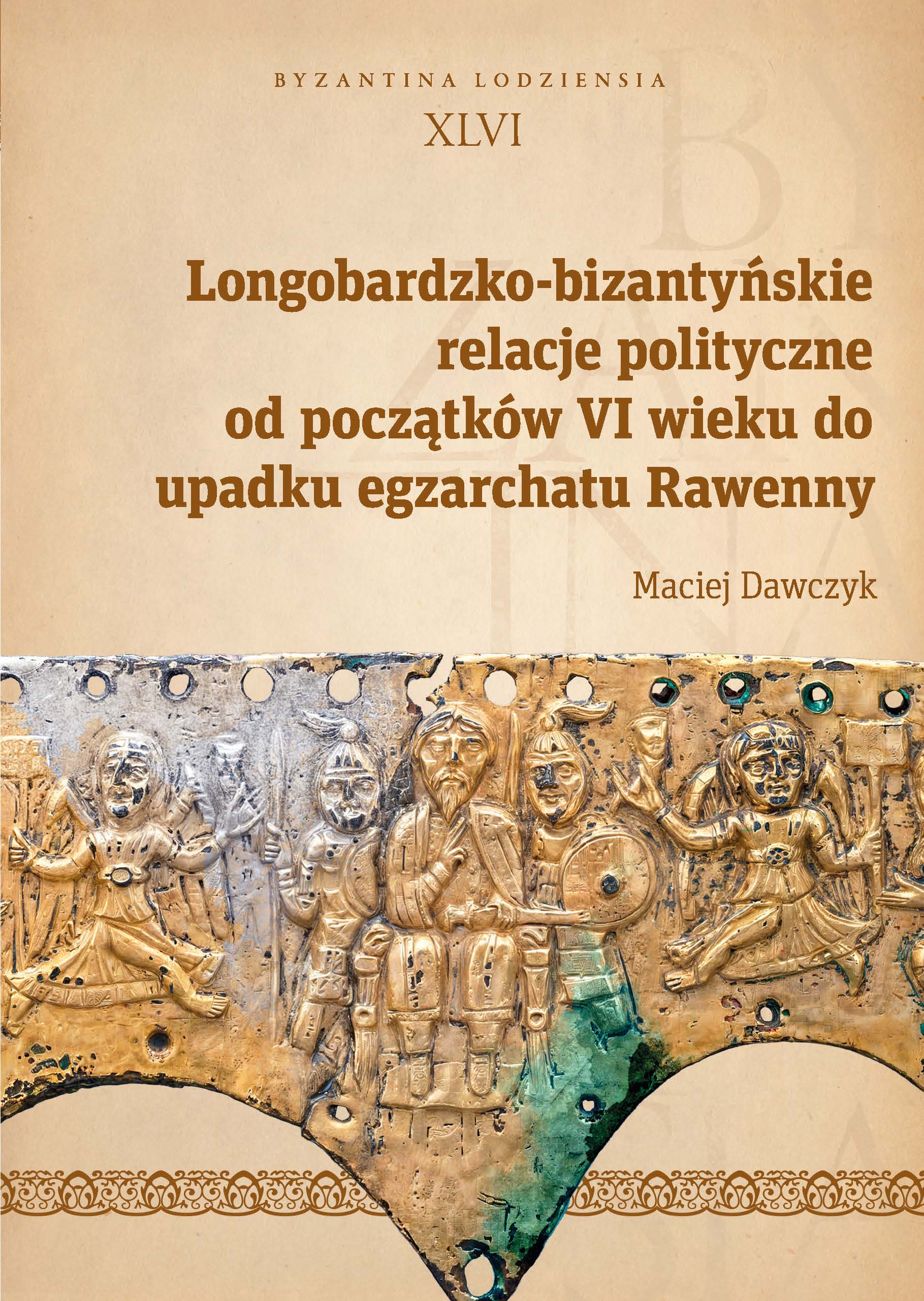Longobardzko-bizantyńskie relacje polityczne od początków VI wieku do upadku egzarchatu Rawenny; Byzantina Lodziensia, No. XLVI
Lombard-Byzantine Political Relations from the Beginning of the 6th Century to the Fall of the Exarchate of Ravenna; Byzantina Lodziensia, No. XLVI
Author(s): Maciej Dawczyk
Subject(s): History, 6th to 12th Centuries
Published by: Wydawnictwo Uniwersytetu Łódzkiego
Keywords: Lombards; Byzantium; Middle Ages; 6th century; 7th century; 8th century
Summary/Abstract: The subject of this study is the political relations between the Byzantine Empire and the Lombards within the period from the beginning of the 6th century to the fall of the Exarchate of Ravenna. Depiction of their image for whole this period is a difficult task. After the Lombard invasion of Italy, the Empire treated the peninsula as peripheral territory prioritizing a fight against the Avars, the Sasanians, and the Arabs. For this reason, intensity of the relations rapidly diminished from the beginning of the 7th century what makes the coherent reconstruction of their image challenging. The reflection of the general Byzantine attitude towards Italy is a scarcity of information about the Lombards in the Greek language sources. Although the western Latin sources are numerous and various (at least to the beginning of the 7th century), they usually show internal Italian perspective. For the later period, the materials are much more scarce, full of gaps, and biased. In the first half of the 6th century, the Lombards settled in Pannonia and became an ally of the Empire. At that time Byzantium used them as the factor necessary to maintain balance of power in the region and to limit the significance of the Gepids. The situation changed after the Lombard invasion of Italy. The Lombards quickly conquered a large part of the peninsula apart from the centre and some coastal areas. Due to its limited opportunities, Constantinople did not used substantial military means to strike back against the aggression. Instead, the Empire resorted to intrigues, paying tributes to warlords, and seeking Frankish military support. At that time, the Exarchate of Ravenna was created as the structure governing Byzantine part of Italy. Relatively peaceful status quo was shaped in the beginning of the 7th century, the evidence of which was subsequent truces and the exchange of embassies at central authorities level in 609. It seems that the Lombard monarchy in Italy was not interested in a compromise in the form of even formal recognition of its dependence to Byzantium in exchange for imperial recognition of its right to rule the larger part of the peninsula, and a treaty concluded in 609 was the acknowledgement of the Lombard political independence. However, in the 7th century, the relations became less intense and tense, there were a few significant episodes. One of them was the conquest of Byzantine Liguria by the Lombards in the 40s. Another was the Italian expedition of Emperor Constans II, which was projected to, above all, strengthen the position of the Empire in the Mediterranean and prevent it from Muslim aggression. Implementing this concept the Emperor probably wanted to conquer the Duchy of Benevento as well, but he failed. It is possible that around 680 another treaty stabilizing the situation in Italy was concluded, but the source evidence concerning it is very ambiguous and due this fact its significance should not be overestimated, especially considering that the existence of this agreement is hard to prove. In the 8th century, the Lombard aggression towards the Exarchate was resumed. King Liuptrand efficiently strived to achieve unquestionable hegemony in Italy. At that time, the significance of the papacy increased and it took over, in the face of growing passivity of Constantinople towards the peninsula and weakness of the Exarch, the burden of negotiations with the Lombards. Aggressive attitude of the Lombard monarchy finally led it to the conquest of Ravenna and liquidation of the Exarchate around 751.
Series: Uniwersytet Łódzki
- E-ISBN-13: 978-83-8331-502-7
- Print-ISBN-13: 978-83-8331-501-0
- Page Count: 364
- Publication Year: 2024
- Language: Polish
- eBook-PDF
- Sample-PDF
- Table of Content

